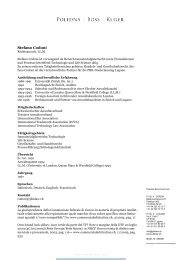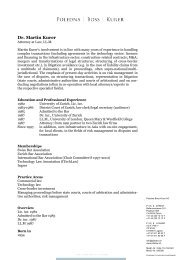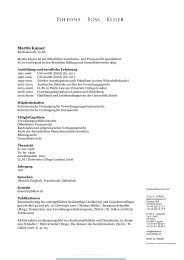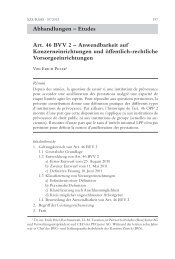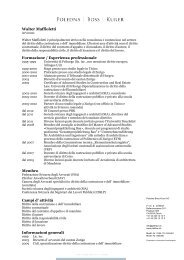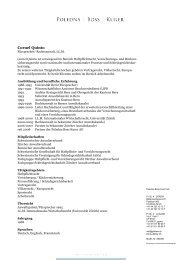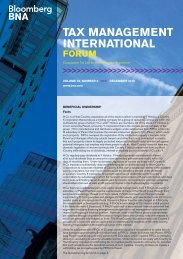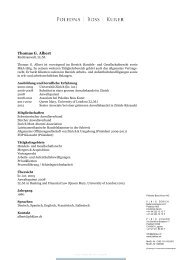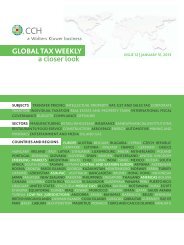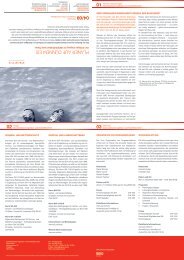721.8 kB - Poledna | Boss | Kurer
721.8 kB - Poledna | Boss | Kurer
721.8 kB - Poledna | Boss | Kurer
- No tags were found...
Create successful ePaper yourself
Turn your PDF publications into a flip-book with our unique Google optimized e-Paper software.
that each transaction must be assessed separately,and that the transfer of a full company by a numberof shareholders does not qualify as a "transfer of atotality of assets".The ECJ ruled in conclusion that:"Articles 5(8) and/or 6(5) of Sixth Council Directive77/388/EEC of 17 May 1977 on the harmonizationof the laws of the Member States relatingto turnover taxes - Common system of valueadded tax: uniform basis of assessment must beinterpreted as meaning that the disposal of 30%of the shares in a company to which the transferrorsupplies services that are subject to VAT doesnot amount to the transfer of a totality of assetsor services or part thereof within the meaning ofthose provisions, irrespective of the fact that theother shareholders transfer all the other shares inthat company to the same person at practicallythe same time and that that disposal is closelylinked to management activities carried out forthat company."The judgment was delivered on May 30, 2013.http://curia.europa.eu/juris/document/document.jsf?text=&docid=137829&pageIndex=0&doclang=EN&mode=lst&dir=&occ=first&part=1&cid=65291European Court of Justice: Netherlands v. X BV(C-651/11)RomaniaThe European Court of Justice was asked for a preliminaryruling during proceedings at the OradeaCourt of Appeal where a company which had beendenied reimbursement of excise duties that it hadpaid in Romania argued that the law required therequest for reimbursement to be made after theproducts it had exported had arrived at their destination,due to the information that was necessaryfor the request to be made. The tax authority insistedthat it could not accept the request according toEU law precisely because the products had alreadyentered another Member State. The Court of Appealtherefore petitioned the ECJ for an interpretationof the law.The reimbursement of excise duties is allowed underEU law for the sake of harmonisation and toprevent double taxation by ensuring that excise dutiesare only levied in one Member State.Th e ECJ identified two different methods ofreimbursement under EU law, and found thatRomanian law appears to only incorporate oneof them; namely the method that requires therequest for reimbursement to be made beforethe goods are dispatched as part of a suspensionagreement, and before excise duties are paid inthe destination State.Th e second method however, does not impose atime for the request to be made; the requirementfor reimbursement is that the excise duties have96



